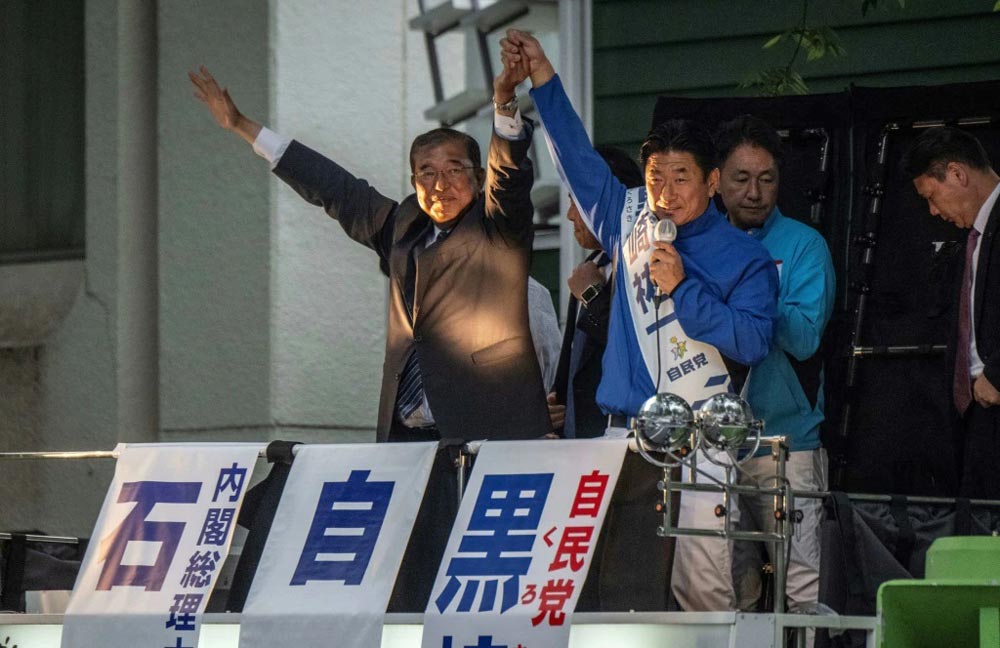Japan is at a political crossroads as voters head to the polls in an election that could dramatically impact Prime Minister Shigeru Ishiba’s government. The ruling Liberal Democratic Party (LDP) and its coalition partner, Komeito, are bracing for a significant setback due to a funding scandal and rising inflation, threatening their decade-long dominance.
Election Dynamics
Opinion polls suggest the LDP and Komeito may lose their parliamentary majority. This shift comes as Japan grapples with economic challenges and strained relations with China. Losing the majority could force Ishiba to negotiate power-sharing agreements with smaller parties, creating uncertainty in policy areas. However, forecasts indicate the LDP will remain the largest parliamentary force.
Potential Coalition Challenges
Possible coalition partners include the Democratic Party for the People (DPP) and the Japan Innovation Party. Both propose policies that conflict with the LDP’s agenda, such as tax reductions and stricter donation regulations. These differences could complicate governance and policy implementation.
Economic Concerns
The election outcome is crucial for Japan’s financial landscape, with the Bank of Japan’s interest rate policies potentially affected. Market reactions are anticipated, especially if new coalition dynamics emerge.
Voter Sentiment
Economic issues top voter concerns, with nearly 40% prioritizing the cost of living. Many voters are calling for tax cuts and wage increases, though some remain skeptical about the opposition’s ability to deliver reforms.











